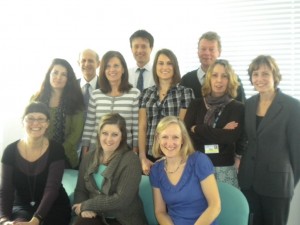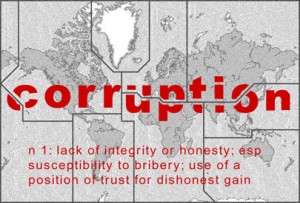In previous blogs we have described how BUCRU can help in developing grant applications. In this blog we describe some of the funded projects we are involved in.
BUCRU led research
Fatigue management in multiple sclerosis (MS): We have just completed a multi-centre randomised trial of a cognitive behavioural approach to fatigue management in people with multiple sclerosis1. This project was funded by the MS Society (http://www.mssociety.org.uk).
Improving activity and wellbeing in people with MS: We are just starting a MS Society funded pilot study to look at the Nintendo Wii home gaming system as a method of helping people with MS increase their activity levels and wellbeing.
Systematic review of psychological interventions for people with MS: A small grant to update our existing Cochrane review2
BUCRU collaborative projects
IDvIP: A National Institute for Health Research (NIHR) Research for Patient Benefit (RfPB) (http://www.ccf.nihr.ac.uk/RfPB/Pages/home.aspx) funded project. This is a multi-centre trial comparing 2 methods of pain relief for women in labour; diamorphine and pethidine3. The Chief Investigator is a Consultant in one of the local hospitals and a member of the Bournemouth University Visiting Faculty. BUCRU staff were involved in the design of the study, applying for the grant, data management, statistical analysis and interpretation, and advice on project management.*
WEIGHTED: A small grant from the College of Emergency Medicine held by a local Consultant/ member of the Visiting Faculty. This study is about to start and aims to develop a robust method of estimating the weight of patients attending a hospital emergency department. Many patients require a weight dependent dose of potentially life saving medication, but are too ill to be actually weighed. BUCRU were involved in designing the study and securing funding, and will be involved in ongoing advice on project and data management, statistical analysis and interpretation.
PEARLS: A large multi-centre trial of training maternity staff in assessing and repairing tears to the perineum acquired during labour and delievery4. This project is funded by the Health Foundation (http://www.health.org.uk) and run under the auspices of the Royal College of Midwives. BUCRU has been involved in data management, statistical analysis and interpretation.
PREVIEW: A pilot randomised trial comparing two methods of looking after tears to the perineum. The Chief Investigator is based in Birmingham, and the study is funded by the NIHR RfPB funding scheme. This study has recently started, and BUCRU was involved in the design of the study and the funding application. Further involvement will be in advising on project management, data management and statistical analysis.
Clinical Doctoral Research Fellowship: (http://www.nihrtcc.nhs.uk). Award held by BU and won by a radiographer based at the Anglo-European College of Chiropractic. The project involves tracking and measuring spinal motion. The research may have important implications in diagnosing people with chronic lower back pain. BUCRU were involved in the study design and funding application, and 2 members of staff are supervisors for her PhD.
Contact us:
In the first instance please contact
Louise Ward (administrator):
Bournemouth University Clinical Research Unit
R505 Royal London House
Christchurch Road
Bournemouth BH1 3LT
Tel: 01202 961939
http://blogs.bournemouth.ac.uk/bucru/
1 Thomas, P.W., Thomas, S., Kersten, P., Jones, R., Nock, A., Slingsby, V., et al., 2010. Multi-centre parallel arm randomised controlled trial to assess the effectiveness and cost-effectiveness of a group-based cognitive behavioural appoach to managing fatigue in people with multiple sclerosis. BMC Neurology, 10:43
2 Thomas, P.W., Thomas, S., Hillier, C., Galvin, K., and Baker, R. (2006). Psychological interventions for multiple sclerosis. The Cochrane Database of Systematic Reviews (Vol. Issue 1, pp. Issue 1. Art. No.: CD004431. DOI: 10.1002/14651858.CD004431.pub2): John Wiley and Sons, Ltd.
3 Wee, M.Y.K., Tuckey, J.P., Thomas, P., Burnard, S. 2011. The IDvIP Trial: A two-centre randomized double-blind controlled trial comparing intramuscular diamorphine and intramuscular pethidine for labour analgesia. BMC Pregnancy and Childbirth, 11: 51
4 Bick, D.E., Kettle, C., MacDonald, S., Thomas, P.W., Hill, R.K., Ismail, K.. 2010. PErineal Assessment and Repair Longitudinal Study (PEARLS): protocol for a matched pair cluster trial. BMC Pregnancy and Childbirth, 10:10.









 The Wolfson Foundation has announced a further call for proposals under the Laboratory Refurbishment Grants Scheme. It aims to improve the existing physical infrastructure in UK universities to promote high quality scientific research. Up to £1.5m in funds will be available for the 2012 round.
The Wolfson Foundation has announced a further call for proposals under the Laboratory Refurbishment Grants Scheme. It aims to improve the existing physical infrastructure in UK universities to promote high quality scientific research. Up to £1.5m in funds will be available for the 2012 round.











 SPROUT: From Sustainable Research to Sustainable Research Lives
SPROUT: From Sustainable Research to Sustainable Research Lives BRIAN upgrade and new look
BRIAN upgrade and new look Seeing the fruits of your labour in Bangladesh
Seeing the fruits of your labour in Bangladesh Exploring Embodied Research: Body Map Storytelling Workshop & Research Seminar
Exploring Embodied Research: Body Map Storytelling Workshop & Research Seminar Marking a Milestone: The Swash Channel Wreck Book Launch
Marking a Milestone: The Swash Channel Wreck Book Launch ECR Funding Open Call: Research Culture & Community Grant – Application Deadline Friday 12 December
ECR Funding Open Call: Research Culture & Community Grant – Application Deadline Friday 12 December MSCA Postdoctoral Fellowships 2025 Call
MSCA Postdoctoral Fellowships 2025 Call ERC Advanced Grant 2025 Webinar
ERC Advanced Grant 2025 Webinar Update on UKRO services
Update on UKRO services European research project exploring use of ‘virtual twins’ to better manage metabolic associated fatty liver disease
European research project exploring use of ‘virtual twins’ to better manage metabolic associated fatty liver disease